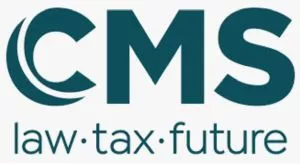- within Media, Telecoms, IT, Entertainment and Wealth Management topic(s)
Another year has passed, and we are pleased to present a meticulously crafted report from our Capital Markets experts. This concise document brings together the most significant legislative changes in 2024 and provides a forward-looking perspective on the challenges anticipated in 2025. We trust that this report will be a valuable resource, providing guidance for your strategic planning and decision-making in the year ahead.
2025 Horizons
CSSF study on the readiness of the issuers to comply with sustainability disclosures Retail Investment Strategy (RIS)
In December 2024, the CSSF published a study entitled "Transition plans: Preparing for climate change impacts: Fact-Finding Exercise on Issuers' Sustainability Reporting" (the Study) on the readiness of issuers to comply with sustainability disclosures, as required namely under the corporate sustainability reporting directive (CSRD). The Studydraws the attention of issuers to the key points to bear in mind when reporting on transition plans and highlights the challenges faced in the context of this context. This Study provides key information to understand the state of awareness and readiness of the issuers before the publication of their first sustainability reports in accordance with the ESRS (the Sustainability Report).
In particular, the Study focuses on the obligation for in-scope
issuers to ensure that their business model and strategy are
compatible with the transition to a sustainable economy and the
limiting of global warming to 1,5 °C in line with the Paris
Agreement under the United Nations Framework Convention on Climate
Change adopted on 12 December 2015 and the
objective of achieving climate neutrality by 2050 as established in
Regulation (EU) 2021/1119 of the European Parliament and of the
Council, and, where relevant, the exposure of the undertaking to
coal, oiland gas-related activities, including implementing
actions.
Finally, the CSSF emphasises that issuers:
- should not only disclose the result of the materiality assessment but also explain the process itself. The Sustainability Report must cover the same consolidation scope as the financial statements;
- using alternative presentation formats must ensure that their sustainability statement is aligned with the overall presentation objectives.
The CSSF is aware that the CSRD is a stepping stone requiring skills and experience that are not acquired overnight, and it also acknowledges that issuers may need time to build the necessary capabilities and expertise to fully comply with the requirements set out in the CSRD.
EU Green Bonds Regulation
On 23 October 2023, the Council of the European Union adopted
the regulation on European green bonds standards (the EU
Green Bonds Regulation). This formal adoption ends a
two-year process, from the European Commission's initial
proposal on 6 July 2021 to the provisional agreement reached with
the European Parliament (the EP) on 28 February 2023, which
was
formally adopted by the EP on 5 October 2023. Key elements of the
EU Green Bonds Regulation include, among others, (i) some
flexibility on the use of proceeds for European Green Bond (EuGB);
(ii) the introduction of a safeguard for the alignment of the EuGB
with the Taxonomy Regulation; (iii) the application of the
technical screening criteria with grandfathering provisions; and
(iv) additional disclosure requirements in case of securitisation
bonds. The EU GB Regulation is applicable as from 21 December
2024.
For more information on this topic, please click here.
2024 Insights | Recent developments
Blockchain Law IV
The law of 20 December 2024, known as "Blockchain Law IV", aims at improving the current legal framework for dematerialised securities by taking advantage of new technologies, in particular distributed electronic register and databases. It introduces a new player: the control agent for the issuance of dematerialized securities (the Control Agent). The Control Agent is appointed by the issuer to (i) maintain the issuance account in or through a secure electronic recording device, including a distributed ledger technology or database; (ii) monitor at any time the chain of custody of dematerialised securities held in securities accounts and (iii) carry out the reconciliation between the aggregate amount of securities issued recorded in an issuance account and the sum of securities recorded in the account holders' securities accounts.
For more information on this topic, please click here.
Commission Delegated Regulation on sustainability disclosures for STS securitisationsThe Commission Delegated Regulation (EU) 2024/1700 of 5 March 2024 supplementing Regulation (EU) 2017/2402 (the Securitisation Regulation), entered into force on 8 July 2024 (the Commission Delegated Regulation). It provides for regulatory technical standards (RTS) on the content, methodologies and presentation of information related to the principal adverse impacts of the assets financed by the underlying exposures on sustainability factors for (a) simple, transparent and standardised (STS) non-ABCP traditional securitisation, and for (b) STS on-balance-sheet securitisation.
The Commission Delegated Regulation applies to originators of (i) non-ABCP traditional STS securitisations and (ii) on-balance-sheet STS securitisations where the underlying exposures are residential loans, auto loans, or leases.
The RTS are applied by in-scope originators on a opt-in basis,
as an alternative to Article 22(4) and 26d(4) of the Securitisation
Regulation, requiring the publication of information on the
environmental performance of the assets financed by the underlying
exposures. As a result, in-scope originators are able to elect to
comply with either (i) the original environmental performance
disclosure requirements as set out in Article 22(4) and 26d(4) of
the Securitisation Regulation or (ii) the disclosure requirements
set out in the RTS.
The primary objective of the RTS is to enhance coherence with the sustainability-related disclosures in financial services as provided for in Regulation (EU) 2019/2088 (the "SFDR"): Although the SFDR is not directly applicable to securitisations as defined in the Securitisation Regulation, originators may be requested to provide relevant information to financial market participants in scope of SFDR who are investing in the relevant securitisation positions and must comply with their SFDR disclosure obligations.
Read more on this topic by clicking here.
ESMA's feedback on the proposed review of the securitisation disclosure templatesThe ESMA published a feedback statement on 20 December 2024, in which summarises the responses it received to its consultation paper published on 21 December 2023 on the securitisation disclosure templates under the article 7 of the Securitisation Regulation (the Feedback Statement).
The Feedback Statement provides a detailed analysis of stakeholder feedback on the costs and benefits of revisiting the current disclosure framework, according to four (4) possible implementation options suggested in the consultation paper: (a) this option recommends delaying any change to the disclosure templates until the next review of the Securitisation Regulation, (b) this option proposes to introduce a few improvements to the current framework, taking into account the needs and interests of current active users, (c) this option suggests to streamline some elements of the framework, with a focus on private transactions, in order to reduce the burden on reporting entities and improve the use of securitisation data for additional reporting, and (d) this option recommends a comprehensive review of the whole framework to enhance its effectiveness).
The respondents acknowledge the necessity for further improvements to the securitisation transparency regime, yet they recommend postponing the revision of the template due to concerns about its timing in relation to the broader review of Securitisation Regulation.
Stakeholders have requested ESMA to prioritise short-term solutions that tackle the industry's most urgent challenges, namely the regulatory compliance costs and the need for a simplified template for private securitisations.
Read more on this topic by clicking here.
The content of this article is intended to provide a general guide to the subject matter. Specialist advice should be sought about your specific circumstances.
[View Source]


